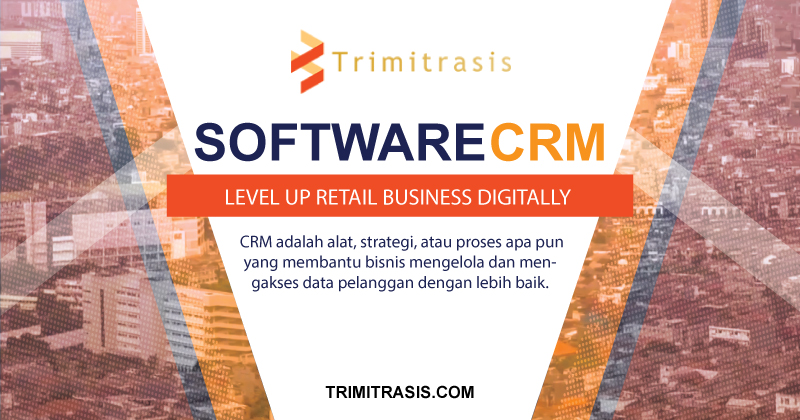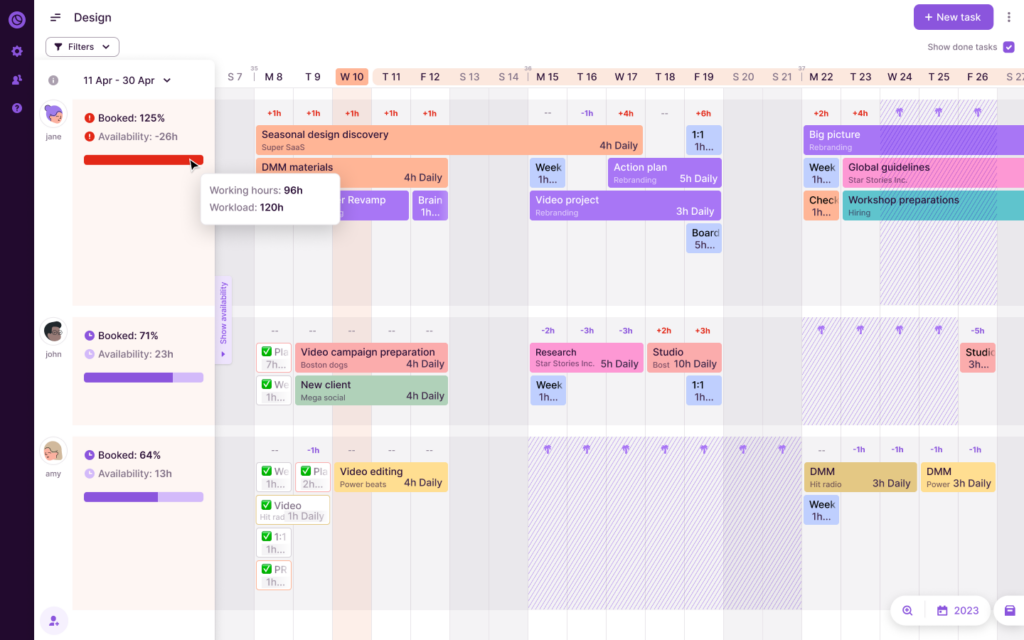Boost Your Indonesian Small Business: The Ultimate Guide to CRM Software

Boost Your Indonesian Small Business: The Ultimate Guide to CRM Software
Running a small business in Indonesia is an exciting journey, filled with opportunities and challenges. You’re constantly juggling multiple tasks, from managing inventory and handling customer inquiries to marketing your products or services. In this whirlwind of activity, it’s easy for crucial details to slip through the cracks. This is where a Customer Relationship Management (CRM) system comes into play. CRM software can be your secret weapon, helping you streamline operations, improve customer satisfaction, and ultimately, grow your business. This comprehensive guide will delve into the world of CRM specifically tailored for Indonesian small businesses, exploring its benefits, features, and how to choose the right one.
What is CRM and Why Does Your Indonesian Small Business Need It?
At its core, a CRM system is a technology that helps you manage all your relationships and interactions with customers and potential customers. Think of it as a centralized hub for all your customer data. This includes contact information, purchase history, communication logs, and any other relevant details. For an Indonesian small business, this is invaluable for several reasons:
- Improved Customer Relationships: A CRM allows you to personalize your interactions with customers. By understanding their needs and preferences, you can provide better service and build stronger relationships. This translates to increased customer loyalty and repeat business.
- Enhanced Efficiency: CRM software automates many time-consuming tasks, such as data entry, email marketing, and appointment scheduling. This frees up your time to focus on more strategic activities, like business development and sales.
- Increased Sales: With a CRM, you can track leads, nurture prospects, and close deals more effectively. The software provides insights into your sales pipeline, allowing you to identify opportunities and optimize your sales process.
- Better Data Analysis: CRM systems provide valuable data and analytics, allowing you to track key performance indicators (KPIs) and make data-driven decisions. You can identify trends, understand customer behavior, and refine your business strategies.
- Improved Collaboration: CRM software facilitates collaboration among your team members. Everyone has access to the same customer information, ensuring that everyone is on the same page and providing consistent service.
In the competitive Indonesian market, these advantages can make a significant difference. A well-implemented CRM can give your small business a competitive edge, helping you to stand out from the crowd and achieve sustainable growth.
Key Features to Look for in a CRM for Your Indonesian Small Business
Not all CRM systems are created equal. When choosing a CRM for your Indonesian small business, it’s essential to consider the specific needs of your business and the features that will be most beneficial. Here are some key features to look for:
Contact Management
This is the foundation of any CRM. It allows you to store and organize all your customer contact information, including names, addresses, phone numbers, email addresses, and any other relevant details. The best CRM systems offer advanced contact management features, such as:
- Segmentation: Ability to group contacts based on various criteria, such as demographics, purchase history, or engagement level.
- Custom Fields: Ability to add custom fields to capture specific information relevant to your business.
- Import/Export: Easy import and export of contact data to and from other systems.
- Duplicate Detection: Automatically identifies and merges duplicate contact records.
Sales Automation
Sales automation features streamline your sales process and help you close deals more efficiently. Look for a CRM that offers features such as:
- Lead Management: Track leads from initial contact to conversion.
- Sales Pipeline Management: Visualize your sales pipeline and track the progress of deals.
- Task Management: Assign tasks to team members and track their progress.
- Email Integration: Send and track emails directly from the CRM.
- Reporting: Generate sales reports to track your performance and identify areas for improvement.
Marketing Automation
Marketing automation features help you automate your marketing efforts and reach your target audience more effectively. Consider a CRM that offers features such as:
- Email Marketing: Create and send targeted email campaigns.
- Marketing Segmentation: Segment your audience based on various criteria to personalize your marketing messages.
- Campaign Tracking: Track the performance of your marketing campaigns.
- Social Media Integration: Integrate with social media platforms to manage your social media presence and engage with your audience.
Customer Service and Support
Excellent customer service is crucial for building customer loyalty. Look for a CRM that offers features such as:
- Ticket Management: Manage customer support requests efficiently.
- Knowledge Base: Create a knowledge base with frequently asked questions and answers.
- Live Chat: Integrate live chat to provide instant support to your customers.
- Customer Feedback: Collect customer feedback and use it to improve your service.
Reporting and Analytics
Reporting and analytics features provide valuable insights into your business performance. Choose a CRM that offers features such as:
- Customizable Dashboards: Create dashboards to track your key performance indicators (KPIs).
- Pre-built Reports: Access pre-built reports on sales, marketing, and customer service.
- Custom Reports: Create custom reports to analyze specific data.
- Data Visualization: Visualize your data with charts and graphs to identify trends and patterns.
Integration with Other Tools
The best CRM systems integrate with other tools you use, such as:
- Email Marketing Platforms: Integrate with platforms like Mailchimp or Constant Contact.
- Accounting Software: Integrate with software like Xero or Quickbooks.
- E-commerce Platforms: Integrate with platforms like Shopify or WooCommerce.
- Social Media Platforms: Integrate with platforms like Facebook, Instagram, and Twitter.
Top CRM Software Options for Indonesian Small Businesses
With so many CRM options available, choosing the right one can be overwhelming. Here are some of the top CRM software options that are well-suited for Indonesian small businesses:
Zoho CRM
Zoho CRM is a popular choice for small businesses worldwide, and it’s a particularly good fit for Indonesian businesses. It offers a comprehensive suite of features, including contact management, sales automation, marketing automation, and customer service tools. Zoho CRM is known for its user-friendly interface, affordability, and robust customization options. They also offer excellent Bahasa Indonesia support.
- Pros: User-friendly, affordable, comprehensive features, good for Indonesian language support.
- Cons: Can be overwhelming for very small businesses with limited needs.
HubSpot CRM
HubSpot CRM is a free CRM that’s perfect for businesses just starting with CRM. It offers a wide range of features, including contact management, sales pipeline management, and email marketing tools. HubSpot CRM is known for its ease of use and its integration with HubSpot’s other marketing and sales tools. It’s a great choice for businesses looking to grow their inbound marketing efforts.
- Pros: Free, easy to use, excellent for inbound marketing.
- Cons: Limited features in the free version, can be expensive as you scale.
Freshsales
Freshsales is a sales-focused CRM that’s designed to help businesses close deals faster. It offers features such as lead scoring, sales automation, and phone integration. Freshsales is known for its intuitive interface and its focus on sales productivity. It can be a good option if your primary goal is to streamline your sales process.
- Pros: Sales-focused, intuitive interface, good for sales teams.
- Cons: Less robust marketing automation features compared to other options.
Pipedrive
Pipedrive is a sales CRM designed to help you manage your sales pipeline visually. It offers a clean and easy-to-use interface, making it easy to track deals and manage your sales process. It’s a great choice for sales teams that want a visual and intuitive sales management tool.
- Pros: Visually appealing and easy to use, great for sales pipeline management.
- Cons: Can be less feature-rich compared to some other options.
Insightly
Insightly is a CRM designed for small businesses and project-based businesses. It offers features for contact management, sales automation, and project management. Insightly is known for its ease of use and its ability to integrate with other business tools. It’s a good option if you need CRM and project management capabilities.
- Pros: User-friendly, good for project-based businesses, good integration capabilities.
- Cons: Can be less feature-rich than some other options.
How to Choose the Right CRM for Your Indonesian Small Business
Choosing the right CRM is crucial for your success. Here’s a step-by-step guide to help you make the right decision:
1. Define Your Needs and Goals
Before you start evaluating CRM systems, take the time to define your needs and goals. What are you hoping to achieve with a CRM? What are your biggest pain points? Identify the features that are most important to your business. For example:
- Do you need to improve customer service?
- Do you want to increase sales?
- Do you need to automate your marketing efforts?
- What are your budget and technical capabilities?
2. Assess Your Budget
CRM software pricing varies widely, from free options to enterprise-level solutions. Determine how much you’re willing to spend on a CRM. Consider the cost of the software itself, as well as any implementation costs, training costs, and ongoing maintenance costs. Some providers offer tiered pricing based on the number of users and features, so be sure to choose a plan that fits your needs and budget.
3. Evaluate Features and Functionality
Once you know your needs and budget, start evaluating different CRM systems. Make a list of the features that are most important to you, and then compare the features of different CRM systems. Consider factors such as:
- Ease of Use: Is the software easy to learn and use?
- Customization Options: Can you customize the software to meet your specific needs?
- Integration Capabilities: Does the software integrate with other tools you use?
- Scalability: Can the software grow with your business?
- Mobile Accessibility: Does the software have a mobile app?
- Customer Support: Does the vendor offer good customer support, including Bahasa Indonesia support if needed?
4. Research Vendors and Read Reviews
Once you’ve narrowed down your options, research the vendors and read reviews from other users. Look for reviews from other Indonesian small businesses to get a better understanding of their experiences. Check the vendor’s website for case studies and testimonials. Consider factors such as:
- Vendor Reputation: Does the vendor have a good reputation?
- Customer Support: Does the vendor offer good customer support?
- Security: Is the software secure?
- Data Privacy: Does the vendor comply with data privacy regulations?
5. Consider a Free Trial or Demo
Most CRM vendors offer free trials or demos. Take advantage of these opportunities to try out the software and see if it’s a good fit for your business. This will allow you to get a feel for the user interface, test the features, and see how the software integrates with your existing tools. Test the features that are most important to you and see if they meet your needs.
6. Plan for Implementation and Training
Implementing a CRM system can be a significant undertaking. Plan for the implementation process, including data migration, customization, and user training. Make sure you have the resources and expertise needed to implement the CRM successfully. Ensure that your team receives adequate training to use the software effectively. This will ensure that your team embraces the new system and uses it to its full potential.
7. Provide Ongoing Support and Optimization
Once the CRM is implemented, provide ongoing support and optimization. Train your team on how to use the software effectively and provide regular feedback. Monitor your KPIs and make adjustments as needed to optimize your CRM usage. Consider the following:
- Regular Training: Provide ongoing training to ensure your team is up to date with the latest features and best practices.
- Performance Monitoring: Monitor your CRM usage and track key performance indicators (KPIs) to identify areas for improvement.
- Regular Audits: Conduct regular audits of your CRM data to ensure data accuracy and completeness.
- Stay Updated: Stay up-to-date with the latest CRM trends and best practices.
Tips for Successful CRM Implementation in Indonesia
Implementing a CRM in Indonesia comes with some unique considerations. Here are some tips for success:
- Choose a CRM with Bahasa Indonesia Support: This will make it easier for your team to use the software and understand the features.
- Consider Local Regulations: Be aware of Indonesian data privacy regulations, such as the Personal Data Protection Law (PDP Law), and ensure your CRM complies with these regulations.
- Prioritize Data Security: Choose a CRM with robust security features to protect your customer data.
- Provide Localized Training: Provide training in Bahasa Indonesia to ensure that your team understands how to use the software.
- Build Strong Customer Relationships: Use your CRM to build strong relationships with your customers by personalizing your interactions and providing excellent service.
- Embrace Mobile Accessibility: Ensure the CRM has a mobile app, as mobile usage is very high in Indonesia.
- Focus on Data Quality: Maintain accurate and up-to-date data in your CRM to ensure you can get the most out of it.
The Future of CRM for Indonesian Small Businesses
The CRM landscape is constantly evolving, and the future holds exciting possibilities for Indonesian small businesses. Here are some trends to watch:
- Artificial Intelligence (AI): AI-powered CRM systems are becoming more sophisticated, offering features such as predictive analytics, automated lead scoring, and personalized recommendations.
- Mobile CRM: Mobile CRM solutions are becoming increasingly important, as they allow businesses to access their customer data and manage their sales and marketing activities on the go.
- Integration with Social Media: CRM systems are increasingly integrating with social media platforms, allowing businesses to engage with their customers and track their social media activity.
- Focus on Customer Experience: CRM systems are increasingly focused on customer experience, helping businesses to provide personalized and seamless customer interactions.
- Hyper-personalization: CRM systems are getting better at providing hyper-personalized experiences, tailoring every interaction to each customer’s unique needs and preferences.
By embracing these trends, Indonesian small businesses can stay ahead of the curve and leverage CRM to achieve their business goals.
Conclusion
Implementing a CRM system is a strategic investment that can significantly benefit your Indonesian small business. By choosing the right CRM, you can improve customer relationships, enhance efficiency, increase sales, and make data-driven decisions. Remember to define your needs, assess your budget, evaluate features, research vendors, and plan for implementation and training. With the right CRM in place, you can take your business to the next level and achieve sustainable growth in the dynamic Indonesian market. Don’t hesitate to explore the options, get hands-on experience, and choose the CRM that best fits your needs. The right CRM is more than just software; it’s a partner in your success.




